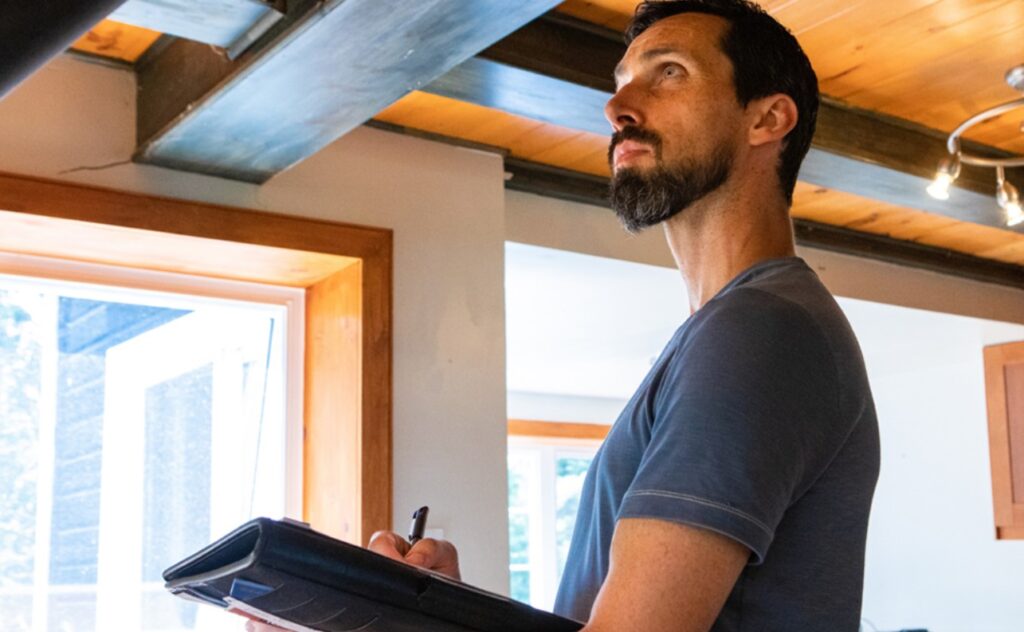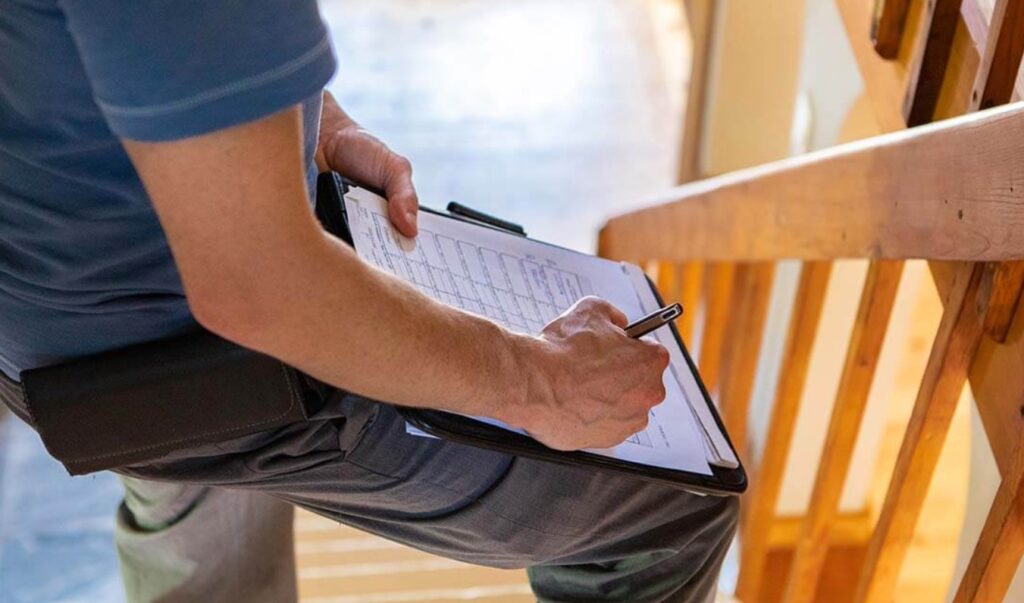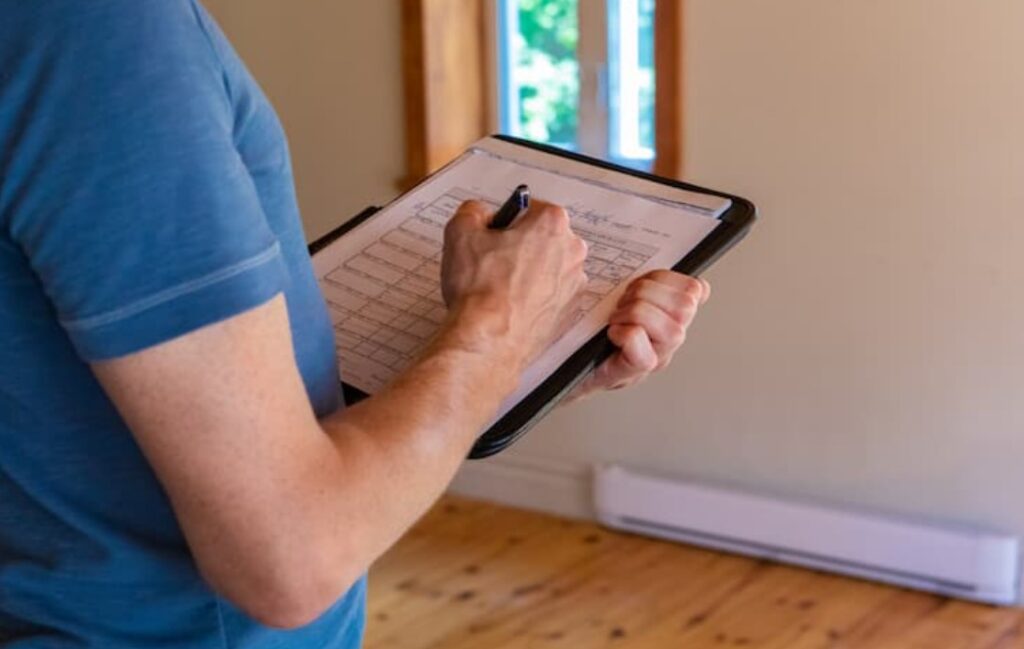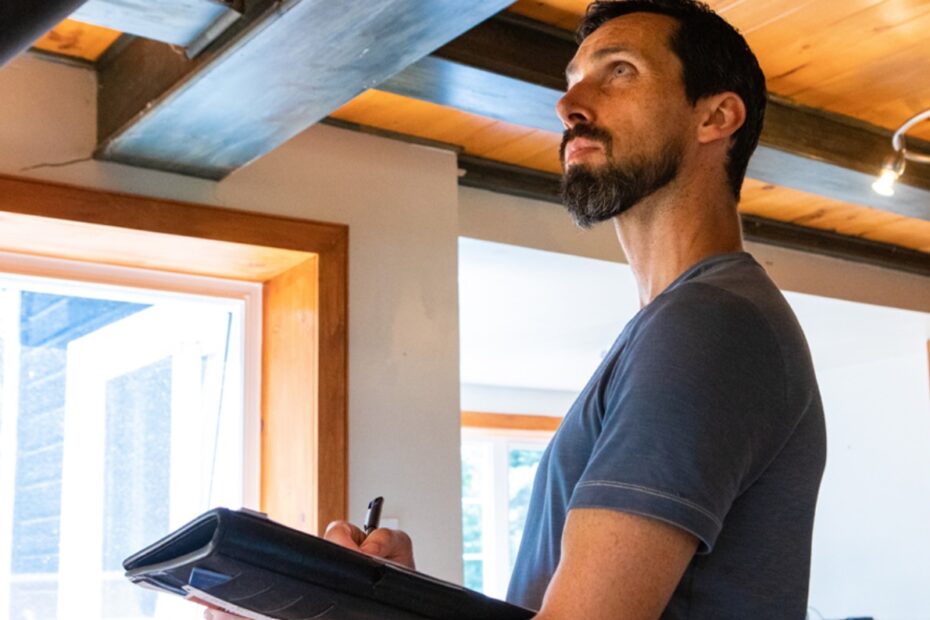This article will explain Do Mortgage Companies Require Home Inspections? Mortgage companies usually don’t mandate home inspections but they are highly recommended. Knowing the condition of your prospective home can save you from future headaches and financial pitfalls.
Key Takeaways
- Mortgage companies generally don’t require home inspections.
- Home inspections are crucial for uncovering hidden issues.
- Different from appraisals, which mortgage companies often require.
- In rare cases, a home inspection may be requested by the lender.
- Home inspections give you leverage in price negotiations.
Do Mortgage Companies Require Home Inspections?
No, mortgage companies generally do not require home inspections. They do, however, usually require a home appraisal to assess the property’s value. While an appraisal provides a financial valuation, a home inspection offers a detailed look at the home’s condition, which is why it’s highly recommended for buyers, even if not mandated by lenders.

The Importance of Home Inspections
Home inspections are not mandatory but they are invaluable. They help you identify mechanical, plumbing, and pest issues. The seller can address these before you finalize the purchase. It’s a proactive step that can save you money and stress in the long run.
Mortgages and Home Inspections
Mortgage companies usually ask for a wood-destroying organisms report (WDO) and an appraisal report. These reports help the lender assess the risk involved in the home loan. In rare cases, if the appraisal or pest control report shows structural defects, a home inspection may be required.

Home Appraisals Vs Home Inspections
An appraisal evaluates the home’s value based on its condition and comparable properties. Home inspections, on the other hand, focus on the overall condition of the house. Both are essential but serve different purposes.
Why Home Inspections are a Good Idea?

- Uncover Hidden Issues: A home inspection can reveal potential problems like structural damage, roof leaks, or electrical issues that may not be immediately visible. Knowing these issues upfront helps you make an informed decision.
- Negotiation Leverage: If the inspection uncovers significant issues, you can use this information to negotiate a lower price with the seller or ask them to make necessary repairs before closing the deal.
- Future Planning: The inspection report can serve as a future maintenance guide. It will list the condition of various elements of the house, helping you prioritize future repairs or upgrades.
- Safety: Inspections can identify safety issues like radon, carbon monoxide, and mold, which are important for the well-being of you and your family.
- Cost Savings: While there’s an upfront cost for the inspection, the long-term savings can be substantial. Identifying and addressing issues early on can prevent more costly repairs down the line.
- Peace of Mind: Knowing the true condition of the home can provide peace of mind. It’s reassuring to know that you’re making a sound investment, free of unpleasant surprises.
- Insurance Benefits: Some insurance companies may offer discounts on homeowner’s insurance if a detailed home inspection has been conducted, as it can identify potential risks that you can address before they become bigger issues.
- Legal Protection: In some cases, the findings from a home inspection can offer you legal protection. If the seller did not disclose certain issues that are later discovered, you may have legal recourse.
- Quality Assurance: For new homes, an inspection can serve as a quality check. It ensures that the builder has done everything according to plan and that the home meets all safety and quality standards.
- Loan Approval: While not a requirement, a positive home inspection report can sometimes expedite the mortgage approval process, as it assures the lender that the property is a good risk.
The Role of Home Inspections in Negotiations

- Price Negotiation: One of the most immediate impacts of a home inspection is on the negotiation of the property’s price. If the inspection reveals issues that will require immediate or future repairs, buyers can leverage this information to negotiate a lower price. This can result in substantial savings, making the cost of the inspection well worth it.
- Request for Repairs: Another negotiation tactic is to ask the seller to make necessary repairs before the sale is finalized. This not only saves the buyer from future expenses but also ensures that the property is in good condition when they take possession.
- Contingency Clauses: Many real estate contracts include a home inspection contingency clause. This allows the buyer to back out of the deal without penalty if the inspection uncovers significant issues. It provides a safety net for buyers, ensuring they aren’t locked into a bad deal.
- Seller’s Disclosure: The findings from a home inspection can be compared against the seller’s disclosure statement. Any discrepancies can be grounds for further negotiation or even legal action, providing an additional layer of protection for the buyer.
- Closing Costs: In some cases, instead of lowering the property price or demanding repairs, buyers can negotiate for the seller to cover a greater portion of the closing costs. This can ease the immediate financial burden on the buyer.
- Home Warranty: If the inspection reveals that some home systems or appliances are near the end of their life expectancy but still functional, buyers can negotiate for the seller to include a home warranty as part of the deal. This will cover the cost of repairs or replacements for a specified period after the sale.
- Timeline Adjustments: Depending on the extent of the repairs needed, buyers may negotiate for an extended closing timeline to allow the seller time to complete the necessary work. Conversely, if the home is in excellent condition, the buyer might push for a quicker closing.
Need a Mortgage Loan?
If you’re in St. Louis, Missouri, and looking for the best home loan deals, the Sean Zalmanoff Mortgage Team is your go-to partner. They have a professional team dedicated to making your home purchase or refinancing as smooth as possible.
The Cost Factor in Home Inspections
While home inspections are generally not required by mortgage companies, they do come with a cost. Typically, a home inspection can range from $300 to $500 depending on the size and location of the property. This is an out-of-pocket expense that you’ll need to consider in your home-buying budget. However, the cost is often justified by the peace of mind and negotiation leverage it provides.
What Happens if Issues Are Found?
If the home inspection reveals significant issues, you have several options. You can request the seller to fix the problems, renegotiate the price, or in extreme cases, walk away from the deal. The choice often depends on the severity of the issues and your willingness to take on repairs. It’s a crucial decision point in your home-buying journey.

The Role of Home Inspectors
Home inspectors play a pivotal role in this process. They provide a detailed report that includes the condition of the home’s heating system, interior plumbing, electrical systems, roof, and other structural elements. Their unbiased perspective can be a valuable asset in making an informed decision.
Types of Home Inspections
There are different types of home inspections, each focusing on specific areas. A general home inspection covers most aspects, but you may also opt for specialized inspections like radon testing, termite inspection, or sewer scope. These specialized inspections are usually not included in the standard package and come with an additional cost.
Specialized Inspections and Their Importance
Specialized inspections can be crucial depending on the age and location of the property. For example, older homes may have asbestos or lead paint, which require specialized testing. Knowing these details can help you negotiate better terms or decide against buying a property with potential health risks.
Home Inspections and Insurance
Some insurance companies may offer discounts on homeowner’s insurance if you’ve had a thorough home inspection. This is because a detailed inspection can identify potential risks, allowing you to address them before they become bigger issues. It’s a win-win for both you and the insurance company.
How do Insurance Companies View Home Inspections?

- Risk Assessment: Insurance companies are in the business of assessing risk, and a detailed home inspection report provides them with valuable data. A positive report can indicate that the property is a low-risk investment, which can be beneficial for both the homeowner and the insurer.
- Premium Discounts: Some insurance providers offer discounts on homeowner’s insurance premiums if a thorough home inspection has been conducted. This is because the inspection can identify potential risks like electrical issues or structural weaknesses, allowing you to address them before they escalate into more significant problems.
- Policy Customization: The findings from a home inspection can help insurance companies tailor your policy more accurately. For instance, if the inspection reveals that you have a state-of-the-art security system, you might be eligible for a discount on the theft coverage in your policy.
- Claim Validation: In the event of a claim, a recent home inspection can serve as a baseline report, helping to expedite the claims process. It provides a record of the home’s condition prior to the claim, making it easier to assess damages.
- Liability Issues: A home inspection can identify potential liability issues like a broken step or missing handrail. Addressing these issues can reduce your liability risk, which is a positive factor from an insurer’s perspective.
- Long-term Relationship: Insurance companies value long-term relationships with low-risk clients. A home inspection that reveals a well-maintained property can set the stage for a long-term relationship, potentially leading to more favorable terms in your insurance contracts.
- Transparency: A detailed home inspection report adds a layer of transparency to the insurance process. It provides a factual basis for the condition of your home, reducing the likelihood of disputes in the event of a claim.
What Type Of Inspection Is Required For A Conventional Loan?
For a conventional loan, in-depth home inspections are generally not required by the lender. However, there are basic property standards that the home must meet. These include being a single-family or multifamily dwelling with no more than four units, being located in the US or its territories, and being “safe, sound, and structurally secure,” among other things.

A home appraisal is typically required to verify the property’s value, but this is not the same as a detailed home inspection. While the lender may not require a home inspection, it’s highly advisable for the buyer to get one to uncover potential issues like foundation problems, faulty systems, or pest infestations.
Conclusion
In summary, mortgage companies generally do not require home inspections. However, skipping this crucial step could mean missing out on vital information about your potential new home. It’s an investment in your future and peace of mind.
From uncovering hidden issues to potentially lowering your insurance premiums, the benefits are manifold. It’s a step that enriches your home-buying experience and safeguards your investment.
Top FAQ’s
How Much Does a Home Inspection Cost?
The cost of a home inspection varies, ranging from $300 to $1,000. Factors like the property’s location and size influence the cost. This expense is usually included in the mortgage closing costs that the homebuyer pays.
What Do Home Inspectors Look For?
Home inspectors focus on identifying current or potential issues, especially those that could be expensive to repair. This includes checking the foundation, roof, and structural systems like heating, air conditioning, electrical, and plumbing.
Do New Homes Require an Inspection?
Yes, even new homes should be inspected. A home inspector offers an unbiased evaluation that protects your investment, regardless of whether the home is new or old.
Is a Home Inspection Required for My Loan?
No, a home inspection is generally not required for your loan. However, the inspection could reveal repairs that may be mandated by a home appraiser, especially if you’re using a government-insured loan.
A multifaceted professional, Muhammad Daim seamlessly blends his expertise as an accountant at a local agency with his prowess in digital marketing. With a keen eye for financial details and a modern approach to online strategies, Daim offers invaluable financial advice rooted in years of experience. His unique combination of skills positions him at the intersection of traditional finance and the evolving digital landscape, making him a sought-after expert in both domains. Whether it’s navigating the intricacies of financial statements or crafting impactful digital marketing campaigns, Daim’s holistic approach ensures that his clients receive comprehensive solutions tailored to their needs.









